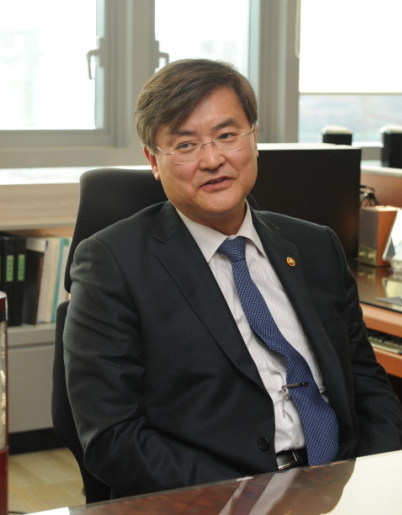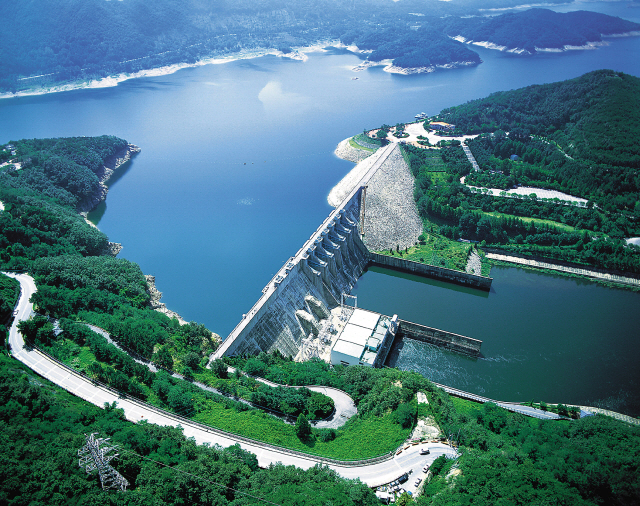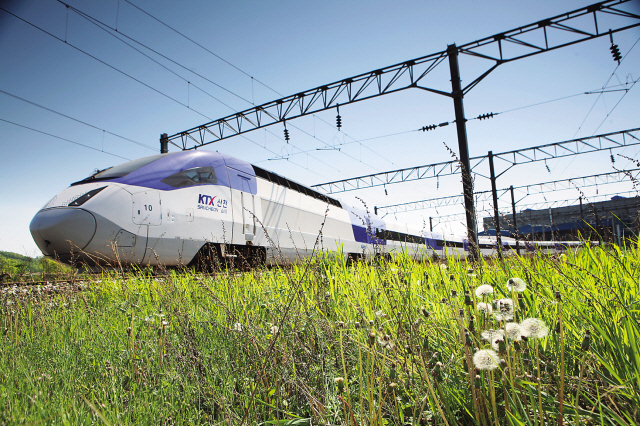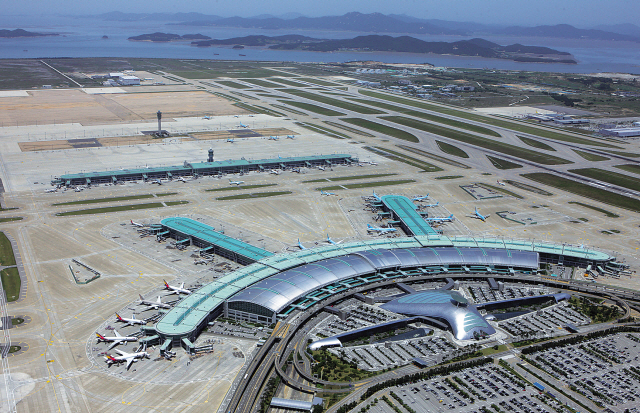Korea to export infrastructure development know-how
Infrastructure Minister Suh says government will support builders’ effort to win bids for overseas infrastructure development projects
By Seo Jee-yeonPublished : May 6, 2013 - 20:15
Korea will eye overseas infrastructure development projects, armed with local experience and know-how accrued over the past half century, the nation’s chief construction policymaker said.
“Korea is one of the few countries that have risen from recipient to donor in just half a century,” Land, Infrastructure, and Transport Minister Suh Seoung-hwan said in a written interview with The Korea Herald.
“This rapid growth largely took place in line with strategic infrastructure development, a model which inspires many developing countries around the world.”
And infrastructure, more than any other facilities or system, needs the government’s active backup and organized leadership, he added.
The ministry’s focus on infrastructure is also reflected in its recently confirmed new name: the Ministry of Land, Infrastructure, and Transport.
Korea is especially strong in new town development, water management and traffic administration, according to the minister.
“Korean infrastructure builders are widely recognized not only for their construction speed, but also for the skills of combining advanced information technology with the facilities of the newly built cities,” Suh said.
Among the examples is a construction project led by Hanwha Group to build 100,000 new residential units in Bismayah New City, Iraq, by 2019. The plan is not just about building new houses in the area but creating a comprehensive living environment including transport and telecommunications.
Middle Eastern and North African countries have shown a keen interest in Korean firms’ city-designing capacities, according to the minister.
“Korea has also proven its competence in water management through the implementation of the four-river restoration project, which helped prevent floods and droughts,” Suh said.
“Korea is one of the few countries that have risen from recipient to donor in just half a century,” Land, Infrastructure, and Transport Minister Suh Seoung-hwan said in a written interview with The Korea Herald.
“This rapid growth largely took place in line with strategic infrastructure development, a model which inspires many developing countries around the world.”
And infrastructure, more than any other facilities or system, needs the government’s active backup and organized leadership, he added.
The ministry’s focus on infrastructure is also reflected in its recently confirmed new name: the Ministry of Land, Infrastructure, and Transport.
Korea is especially strong in new town development, water management and traffic administration, according to the minister.
“Korean infrastructure builders are widely recognized not only for their construction speed, but also for the skills of combining advanced information technology with the facilities of the newly built cities,” Suh said.
Among the examples is a construction project led by Hanwha Group to build 100,000 new residential units in Bismayah New City, Iraq, by 2019. The plan is not just about building new houses in the area but creating a comprehensive living environment including transport and telecommunications.
Middle Eastern and North African countries have shown a keen interest in Korean firms’ city-designing capacities, according to the minister.
“Korea has also proven its competence in water management through the implementation of the four-river restoration project, which helped prevent floods and droughts,” Suh said.

Last year, the ministry signed a memorandum of understanding to develop a comprehensive water management system in countries such as Thailand, Morocco, Paraguay, Peru and Algeria.
The World Water Forum, slated for 2015, also proves Korea’s global initiative in the water management field, the minister said.
Held once every three years and attended by some 200 countries, the WWF is currently the world’s largest water-related international event, aimed at responding to the global water shortage and pollution issues.
“Korea’s advanced infra technology, combined with the country’s peninsular location and seasonal rains, resulted in a highly developed water management system,” the minister said.

“This is why it will be able to lead many of the key agenda issues at the upcoming WWF.”
Transport infrastructure is also an important field in which Korea may display its technical initiative to the world, he said.
“Its high-speed railways and international airports have long been recognized as model examples for their efficiency.”
In order to promote these fortes to the international society, the Land Ministry is now preparing a series of training sessions, inviting high-ranking officials of developing countries to experience Korea’s infrastructure and share the development experiences.


“These training courses are not just about extending our expertise but also about publicizing our achievements to the global community,” Suh said.
“We have to make the best out of our past experiences and use them as a stepping stone to advance into the future.”
The new land minister claims that the sustainable maintenance and improvement of infrastructure is a key factor in achieving the nation’s long-term vision, to rise from the world’s seventh constructor to one of the top five.
“Korean builders are already praised in the overseas market for their high-standard of technology, which was reflected in landmark buildings such as the Marina Bay Sands Hotel in Singapore or Burj Khalifa Tower in Dubai,” he said.
“What they need now, especially amid the prolonged slump in the construction market, is the active support from the government.”
The ministry’s target for overseas construction deals this year is $70 billion, up from the original $64.9 billion, according to officials.
“In order to see beyond the local market and to rise in the world construction market, the continued development and promotion of Korean infrastructure is absolutely crucial,” Suh said.
Suh Seoung-hwan
1979: Graduated from Yonsei University
1981: Earned a master’s degree in economics from the school
1989: Earned a Ph.D. in economics from Princeton University in the U.S.
1996: Started as professor, department of economics, College of Business and Economics, Yonsei University
2001: Named executive member, Korean Association for Housing Policy Studies
2003: Named director of Economic Research Institute, Yonsei University
2008: Selected as head of Songdo City Development Team, Yonsei University
January 2013: Served as member of the 18th presidential transition committee
March 2013: Appointed as minister of land, infrastructure and transport
By Bae Hyun-jung (tellme@heraldcorp.com)







![[Weekender] How DDP emerged as an icon of Seoul](http://res.heraldm.com/phpwas/restmb_idxmake.php?idx=644&simg=/content/image/2024/04/25/20240425050915_0.jpg&u=)
![[KH Explains] No more 'Michael' at Kakao Games](http://res.heraldm.com/phpwas/restmb_idxmake.php?idx=644&simg=/content/image/2024/04/28/20240428050183_0.jpg&u=20240428180321)








![[Herald Interview] Mistakes turn into blessings in street performance, director says](http://res.heraldm.com/phpwas/restmb_idxmake.php?idx=652&simg=/content/image/2024/04/28/20240428050150_0.jpg&u=20240428174656)
